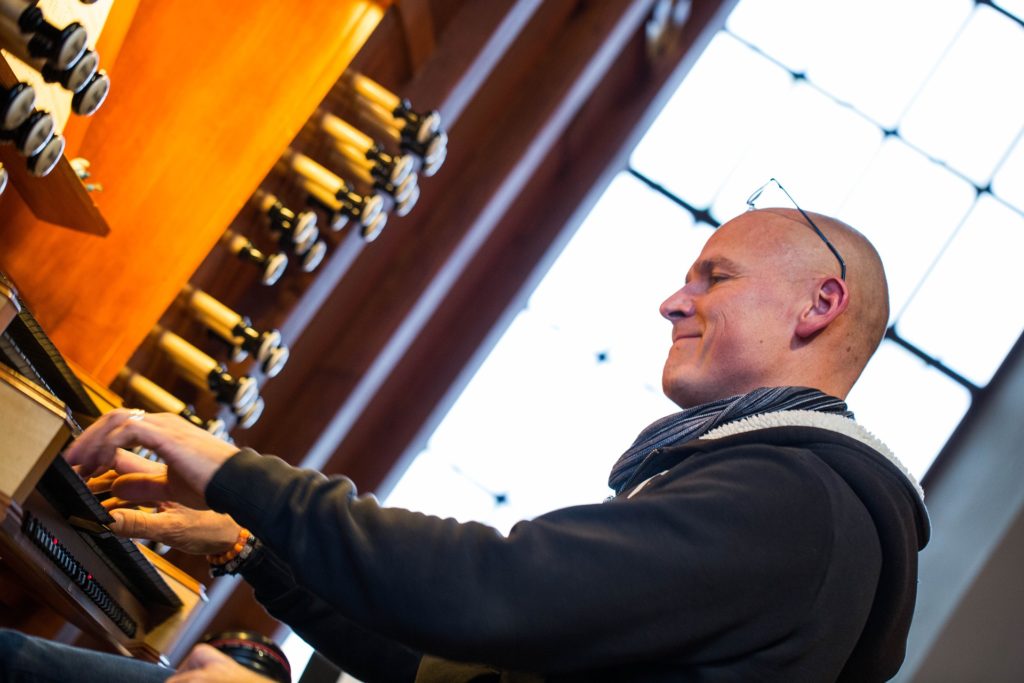Organ – The Music Must Be Secondary If You Want to Fully Heal Your Body (Pipe)(Musicians)(Psychology)(Pain)(Strain)(Injuries)(Posture)(Alexander Technique)(Albuquerque)
This ebook, An Alexander Technique Approach to Organ Technique, is published on this website in a PDF format. It is very detailed and practical, and it will give you the physical tools you need to take the limits off of your ability to create the accurate organ technique you want without sacrificing your body.
This ebook is also for sale on all AMAZON websites in a KINDLE format.
Located in Albuquerque, New Mexico, U.S.A. (MOVEMENT THERAPY)
IF YOU WANT TO MAKE MAJOR TRANSFORMATIONAL CHANGES TO YOUR ORGAN TECHNIQUE, SO THAT YOU DON’T HURT ANYMORE AND CAN PLAY ALL OF THE GREAT LITERATURE WRITTEN FOR YOUR INSTRUMENT, THEN YOU NEED TO DO WHAT YOU PROBABLY HAVE NEVER DONE. THAT IS TO PLACE ALL OF YOUR ATTENTION ON YOUR TECHNIQUE AND POSTURE AND LET THE MUSIC ONLY BE THE VEHICLE FOR RETRAINING.
If you truly place all of your attention on how you’re using your body at the organ and none of your attention on what is coming out of the organ, then for maybe the first time in your playing career, you will make COMPLETE changes to your organ technique that take all of the artificial limits off your talent.
As long as you split your attention between changing your technique and making sure that what is being played meets your standard of fine organ playing, you will do neither. This means that the music will compromise the changes you are attempting to make to your technique, and these changes you’re attempting to make will certainly compromise your intended accuracy and interpretation of the music.
So, the music must be absolutely secondary and subservient to the technique changes you are wanting to make. Implicit in all of this is that you are taking care of yourself by making it as easy as you can, so you can internalize the changes as quickly as you can. Then you can place all of your attention on how beautiful the music is, because you have created a technique that makes your organ playing effortless.
In this essay I used the word COMPLETE to refer to changes you make to your technique. What do I mean? Complete is a great word in this context. I’m using it to mean that you have come to the END of refining your organ technique, so that you can finally do what you want to do at the organ.
How many organists do you know that have a completed organ technique? Possibly none. What does this mean? It means that not having a complete organ technique is the norm. What does THE NORM mean? It means that if no pianist you know has a truly flawless organ technique, then that is the way it is suppose to be. Is it? NO!
It simply means that you don’t know any organists who have taken the steps to eliminate all of the weaknesses in their technique, which I grant is many organists. Let me state the problem and its solution.
YOU CAN TAKE THE STEPS NECESSARY TO DO WHAT YOU WANT ON THE ORGAN, IF YOU ARE WILLING TO ACCEPT THAT WHAT YOU HAVE DONE HASN’T WORKED AND THERE IS SOMETHING OUT THERE THAT WILL WORK. IF YOU ARE WILLING TO NOT FOLLOW THE CROWD OF ORGANISTS UNABLE TO DO WHAT THEY WANT, THEN YOU ARE FREE TO FOLLOW A PATH THAT CAN ONLY BE TAKEN, IF YOU ARE WILLING TO MAKE THE MUSIC SECONDARY AND YOU AND YOUR TECHNIQUE AND POSTURE PRIMARY.
One final comment about complete. Complete doesn’t mean that your technique will not evolve and become even more effortless. It means you have finally arrived at a point in your organ playing where what is difficult and worth playing is easily playable, and you can finally HEAR the music.
